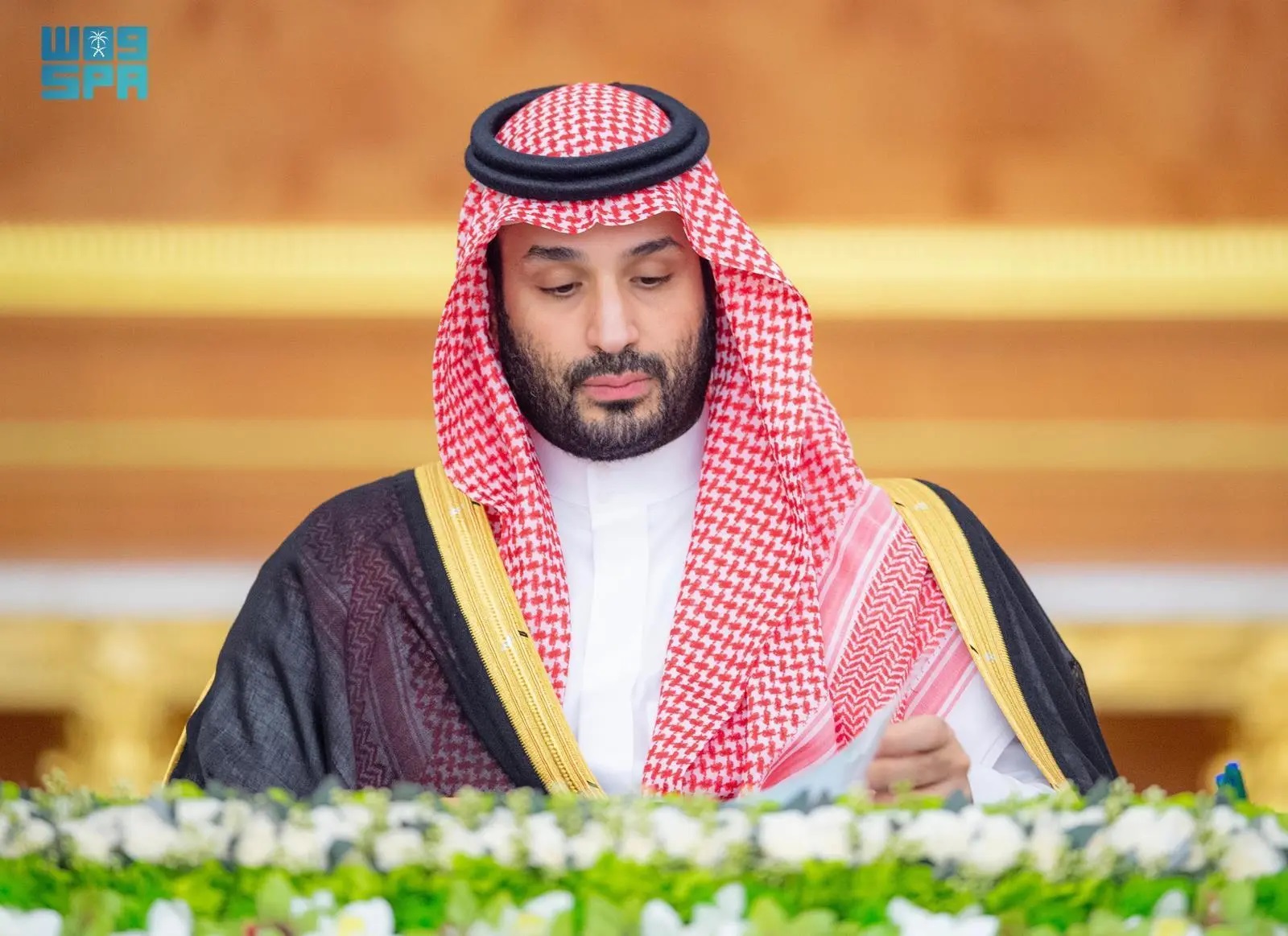
HRH the Crown Prince Chairs Cabinet Session
His Royal Highness Prince Mohammed bin Salman bin Abdulaziz Al Saud, Crown Prince and Prime Minister, chaired the Cabinet session held today in Jeddah.
HRH the Crown Prince, on behalf of Custodian of the Two Holy Mosques King Salman bin Abdulaziz Al Saud, welcomed pilgrims arriving in the Kingdom from around the world to perform Hajj rituals this year. He expressed gratitude to Allah Almighty for bestowing Saudi Arabia the honor of serving the two holy mosques, caring for their visitors, and ensuring their safety and comfort.
HRH the Crown Prince directed all relevant authorities to operate with utmost efficiency and excellence in implementing security, preventive, and organizational plans to serve the pilgrims in Makkah, Madinah, the holy sites, and at the Kingdom's entry points, including continuing to facilitate pilgrim arrivals through the Makkah Route Initiative.
In a statement to the Saudi Press Agency following the session, Minister of Media Salman Al-Dossary said that the Cabinet reviewed the significant progress in the Kingdom's economic performance indicators, increased investment levels, greater private sector participation in development, and integrated efforts among government sectors to maximize national resource utilization.
The Cabinet confirmed that the record performance of non-oil exports in 2024 and their continued growth reflect the Kingdom's accelerated efforts to diversify income and capitalize on global opportunities to achieve new gains in line with Vision 2030 goals.
The Cabinet praised the ongoing significant improvements in digital services across vital sectors, which contributed to the Kingdom ranking first among Middle East and North African countries for the third consecutive year in the 2024 Government Electronic and Mobile Services Maturity Index, issued by the United Nations Economic and Social Commission for Western Asia (ESCWA).
The Cabinet also regarded the Kingdom’s remarkable leap of 92 positions in the 2024 Open Data Inventory report, issued by the Open Data Watch, as a reflection of its commitment to enhancing the quality of statistical indicators, facilitating access to information, and ensuring reliability and transparency.
The minister stated that the Cabinet also discussed recent regional and international developments, along with the Kingdom’s ongoing efforts to de-escalate tensions. He added that the Kingdom continues to work closely with brotherly and friendly nations to address crises, reduce tensions, and promote respect for international law in pursuit of a more stable and prosperous world.
The Cabinet reiterated the Kingdom’s continued efforts to mobilize international support to end violence, protect civilians, and ensure the delivery of humanitarian aid to affected areas in Palestine. It also reaffirmed the Kingdom’s commitment to advancing the two-state solution as the only path to achieving lasting peace and security.
The Cabinet strongly condemned the Israeli attacks on Syria's sovereignty and security, warning that the continuation of such violations and extremist policies exacerbates the risk of regional violence and instability.
The Cabinet called for an immediate end to the war in Sudan and urged efforts to spare the country further suffering and destruction. It emphasized that resolving the crisis requires a Sudanese-led political solution that respects the country’s sovereignty and unity and is supported by its national institutions.
The Cabinet tackled other items on its agenda and issued several decisions, including the following:
First:
Approving a declaration of intent between the Saudi Ministry of Industry and Mineral Resources and the French Ministry of the Economy, Finance and Industrial and Digital Sovereignty for cooperation in critical minerals.
Second:
Authorizing the minister of industry and mineral resources, or a deputy, to discuss and sign with the US side a draft memorandum of cooperation in the field of mining and mineral resources between the Saudi Ministry of Industry and Mineral Resources and the US Department of Energy.
Third:
Authorizing the minister of tourism, or a deputy, to discuss and sign with the Belizean side a draft memorandum of understanding for cooperation in the field of tourism between the Saudi Ministry of Tourism and the Belizean Ministry of Tourism and Diaspora Relations.
Fourth:
Approving an agreement between the Kingdom of Saudi Arabia and the Republic of Djibouti on the promotion and reciprocal protection of investments.
Fifth:
Approving a memorandum of understanding between the Saudi Small and Medium Enterprises General Authority and Enterprise Estonia in the development of the small and medium enterprises sector and entrepreneurship.
Sixth:
Approving a memorandum of understanding between the Saudi Zakat, Tax and Customs Authority and the Bulgarian National Revenue Agency for cooperation in tax administration.
Seventh:
Authorizing the minister of environment, water and agriculture, chairman of the board of directors of the National Center for Vegetation Development and Combating Desertification (NCVC), or a deputy, to discuss and sign with the Uzbek side a draft memorandum of understanding between the Saudi NCVC and the Uzbek Ministry of Ecology, Environmental Protection and Climate Change for cooperation in vegetation development and combating desertification.
Eighth:
Approving the guiding model of a memorandum of understanding for cooperation in the field of roads between the Saudi Roads General Authority and its counterpart agencies in other countries, and authorizing the minister of transport and logistic services and chairman of the board of directors of the Roads General Authority, or a deputy, to discuss and sign with counterpart agencies in other countries draft memoranda of understanding for cooperation in the field of roads, based on the guiding model.
Ninth:
Approving the guiding model of a memorandum of understanding for cooperation in combating human trafficking crimes between the Saudi Human Rights Commission and its counterpart agencies in other countries, and authorizing the president of the Human Rights Commission, or a deputy, to discuss and sign with counterpart agencies of the commission in other countries draft memoranda of understanding for cooperation in combating human trafficking crimes, based on the guiding model.








